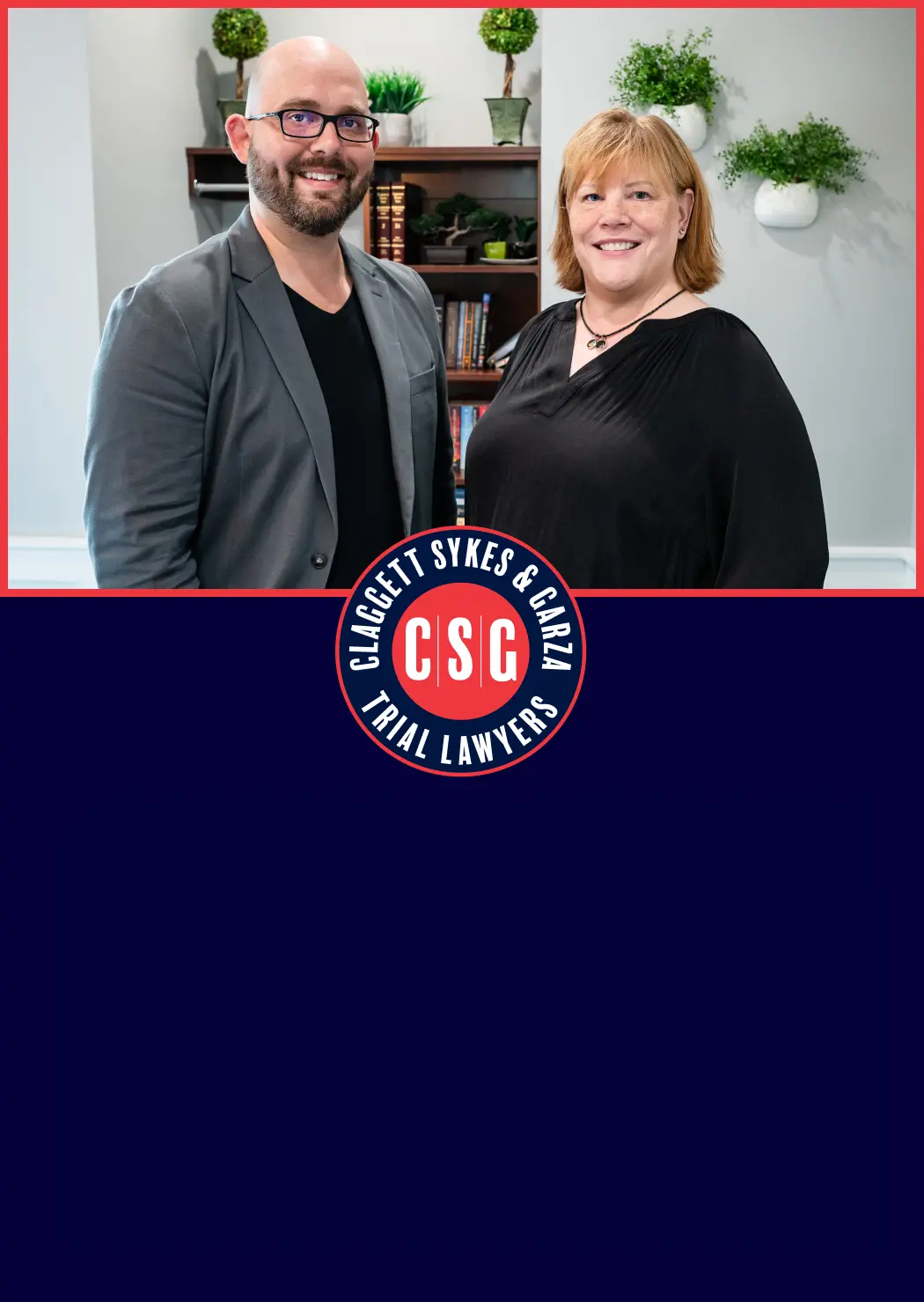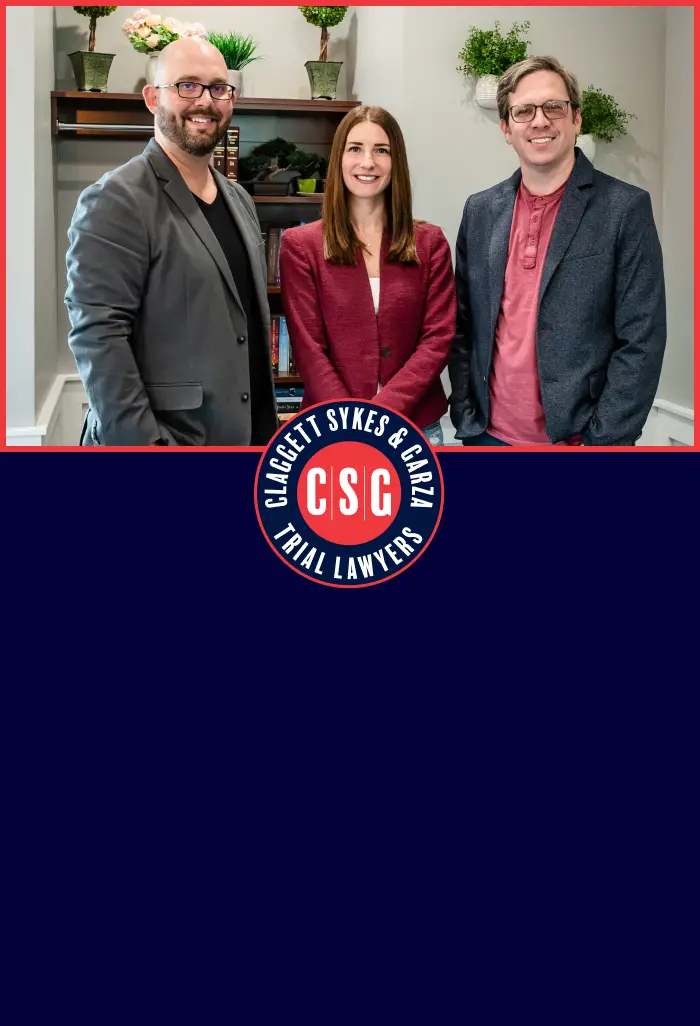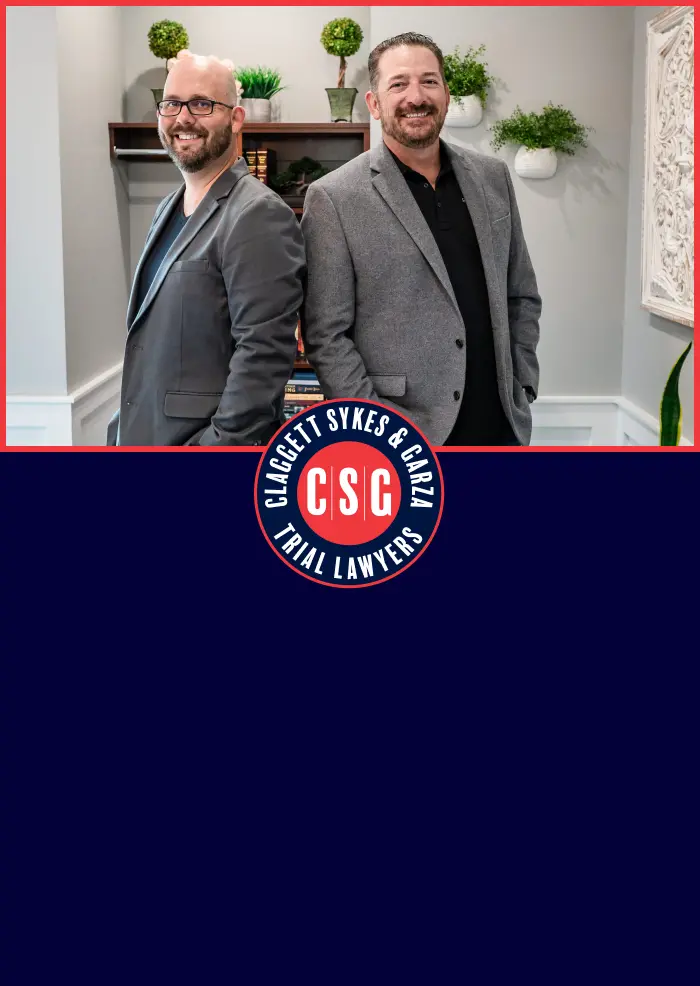
What you can do if your doctor refuses to treat you depends on the circumstances, but if the refusal results in harm, you may have legal options. While physicians are not legally required to accept every patient, there are strict boundaries around when and how care can be denied.
If the refusal occurs without notice or during an active course of treatment, it may be considered medical negligence. Being denied care can put your health and safety at risk.
Whether you’re managing a chronic condition or in need of urgent medical attention, a refusal can leave you vulnerable and without a clear direction.
In some cases, speaking with a Connecticut medical malpractice lawyer is the first step toward protecting your rights and getting accountability.
How Claggett, Sykes & Garza Can Help if You’ve Been Denied Medical Care
At Claggett, Sykes & Garza, we represent individuals throughout Connecticut who have been harmed by medical providers who failed to fulfill their responsibilities.
If your doctor refused to treat you, and you suffered as a result, we are here to help you understand whether that refusal crossed legal or ethical lines.
We handle claims involving improper termination of care, delayed diagnoses, discrimination in healthcare, and failures to treat serious conditions. As experienced Connecticut medical malpractice lawyers, we focus on identifying what went wrong, how it affected you, and what steps are needed to pursue compensation.
In every case we take on, our goal is to secure justice for patients whose health was jeopardized by decisions made without care, warning, or follow-through. We do this by reviewing the treatment timeline, consulting with independent medical professionals, and holding providers accountable when their actions violate accepted standards of practice.

Get the Compensation You Deserve. Our Experienced Lawyers Can Help.
When a Doctor May Legally Refuse Treatment
There are some instances where a doctor has the legal right to decline care. These include:
- Lack of specialized training in the patient’s condition
- Conflicts of interest
- Nonpayment for past services
- Threatening or inappropriate patient behavior
- Religious or ethical objections (under limited circumstances), known as conscientious objections
Even when it’s allowed, a refusal must be handled appropriately. For ongoing care, doctors typically must provide reasonable notice and allow the patient time to transfer to another provider. Ending a treatment relationship without warning can leave the provider open to a claim of patient abandonment.
A refusal without a documented reason may raise further legal questions. If you’re denied care and not given a valid explanation, it’s important to request one in writing and consult legal counsel.
When Refusal Becomes Malpractice
There are other scenarios where refusing to treat may violate medical or legal standards. These include:
- Discrimination: Denying treatment based on race, gender, disability, or other protected traits is illegal under federal and Connecticut state law.
- Emergency Care: Hospitals and emergency departments are obligated to provide stabilizing treatment regardless of insurance status or ability to pay.
- Ongoing Treatment: If a doctor refuses care mid-treatment without warning or fails to provide proper follow-up, it may constitute negligence.
- Retaliation or Oversight: Refusing care due to frustration with the patient or from a failure to review important medical information may result in harm.
In some instances, doctors who refuse treatment may be attempting to shield themselves from potential complications or avoid complicated cases.
However, avoidance is not a legal defense if a duty of care already exists and that duty is breached in a way that causes harm.

Let Us Fight for Your Rights and Maximize Your Compensation.
Steps to Take if You’re Denied Treatment
A refusal to treat can leave you unsure of where to turn next. Here’s what we recommend:
- Request written documentation explaining the reason for the refusal.
- Find alternative medical care immediately to ensure that your condition does not worsen.
- Request copies of your medical records to preserve critical evidence.
- Take notes on all communications, including who you spoke to and what was said.
- Contact a Connecticut medical malpractice lawyer to review your legal options.
It’s also important to keep track of any additional expenses or medical issues that arise after being denied care. That includes follow-up visits, missed work, emergency transportation, or worsened symptoms. These details may become part of a claim for damages if negligence is established.

Experienced Personal Injury Lawyers Ready to Assist You.
How Medical Negligence Causes Harm
When a doctor refuses to treat a patient who needs care, the results can be devastating. Some of the most common consequences include:
- Missed or delayed diagnoses that allowed a condition to progress
- Worsening of an injury or illness due to a lack of treatment
- Emergency procedures or hospitalization that could have been avoided
- Physical pain and emotional suffering caused by a lack of access to care
If a doctor’s refusal causes measurable harm, the law allows you to pursue damages for both economic and non–economic losses. This may include medical expenses, loss of income, reduced quality of life, or emotional distress. The key lies in proving that the refusal directly caused or significantly contributed to the injury or outcome you experienced.
We will investigate whether the doctor owed you a duty of care, whether that duty was breached, and whether that breach caused harm. If all three elements are present, we will move forward with a strategy tailored to your unique situation.
Talk to a Connecticut Medical Malpractice Lawyer Today
At Claggett, Sykes & Garza, we hold healthcare providers accountable when they fail to treat their patients properly. If your doctor refused to treat you without warning or justification, and that decision caused serious harm, we want to hear your story.
We don’t take a one-size-fits-all approach. Each case is personal, and we take the time to understand what happened, how it’s affected you, and what kind of resolution you’re looking for. Whether your goal is to procure a settlement or take your issue to trial, we will prepare your case with thorough attention to detail and a focus on results.
Contact us today for a free consultation with a Connecticut medical malpractice lawyer team that has secured more than $1.5 billion in verdicts and settlements.
We’ll help you understand your rights, evaluate your legal options, and take the next step toward the justice and support you deserve.

